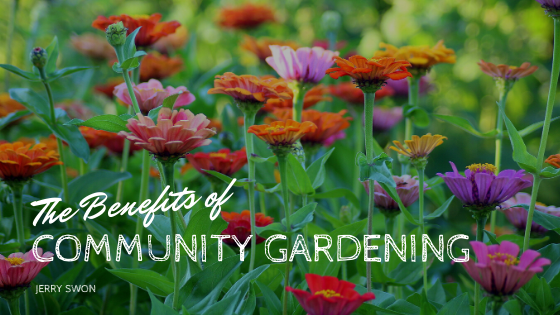Have you ever heard of a community garden? Urban agriculture, sometimes in the form of community gardening is a fantastic way to improve the health of community members, as well as benefit the environment. If you’re someone who is often involved with civic engagement then consider bringing the idea of a community garden to your next virtual neighborhood meeting.
While the year 2020 has posed a number of challenges to support the ability of a community to garden, there are still many ways to see that it’s made possible. Interested parties can discuss things online and set up times for everyone to go in person and get a bit of hands-on experience while remaining seperate and socially distanced. Community members should take their own tools, such as shovels and watering cans. It’s also important that everyone wears a mask and gloves while working in the common areas of the garden.
Community gardens can help to make nutritious foods more accessible in low-income areas Often times obesity and poor nutrition are issues that face these communities. A beautiful garden can help increase the number of fruits and vegetables that people have available to them. Furthermore, by composting the amount of neighborhood waste and be reduced. Not only will the animal life and biodiversity in the area begin to thrive, but the air and soil qualities will also rise.
Growing a garden and building stronger community ties go hand in hand. There are even correlations made between the safety of a neighborhood and whether or not there are shared things such as gardens.
Not only is urban gardening a wonderful way to impact the health of people in a positive way, but it’s also a great way to turn a vacant lot into something useful for everyone. In fact, there have been reports made that show neighborhoods with vacant lots are much more likely to see high crime rates, disease, and mental health disorders. An empty plot of land even decreases surrounding property values and can often become an illegal dumping site. Community gardening can truly empower people in the community.
Finally, urban agriculture or community gardening teaches residents, particularly young people, all sorts of useful skills. These skills include planning, food production, and responsibility. Once the garden is created volunteers can even begin selling any extra produce at local farmers’ markets. Community gardening can be one small way to make a difference in your area, both socially and economically.

